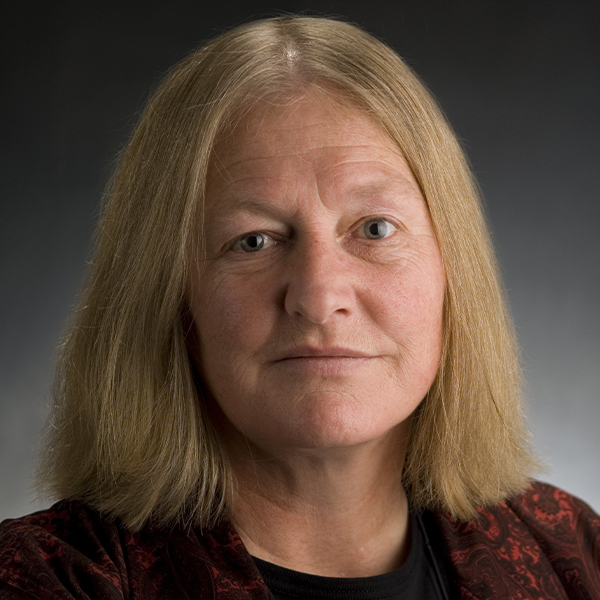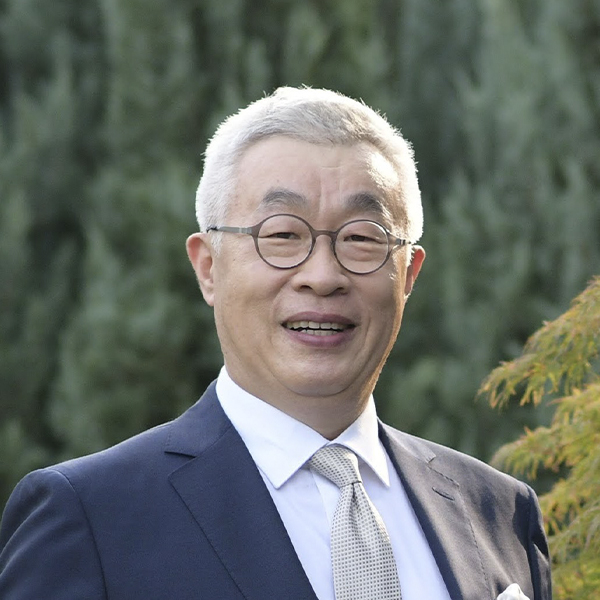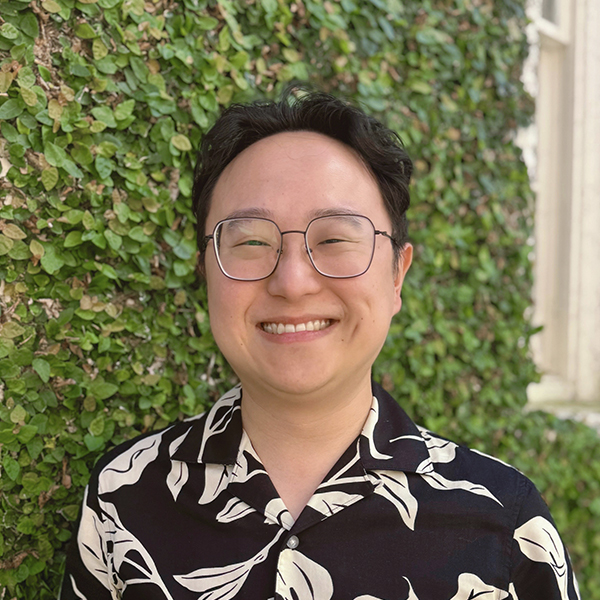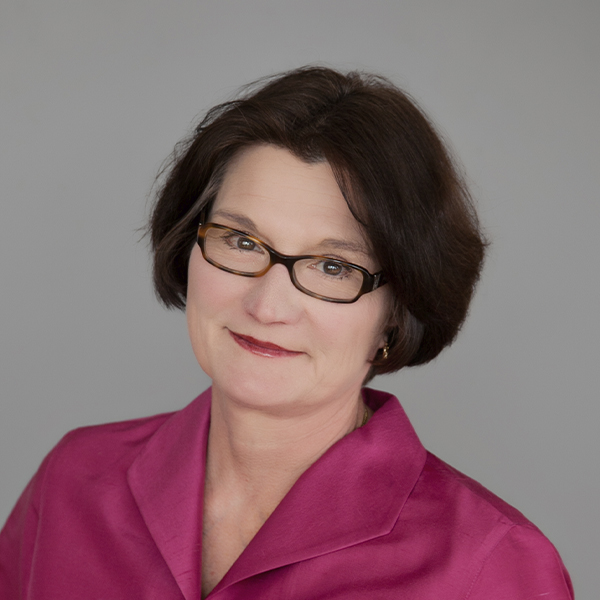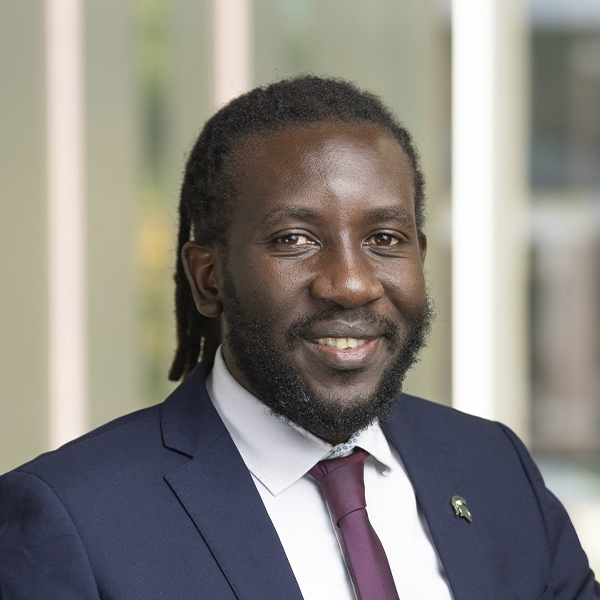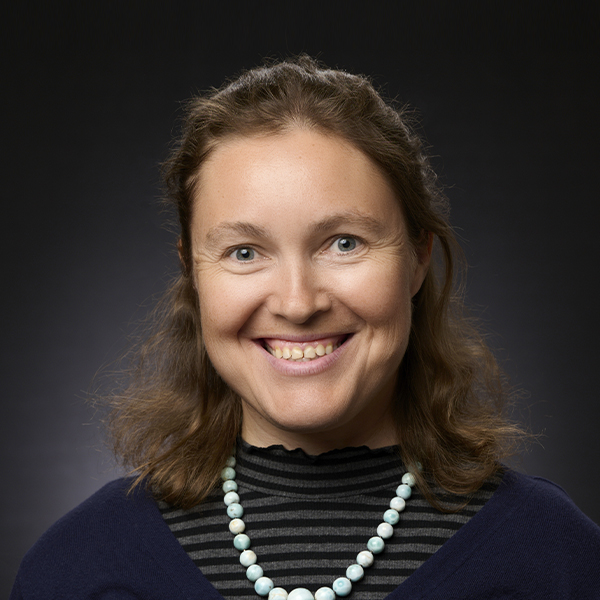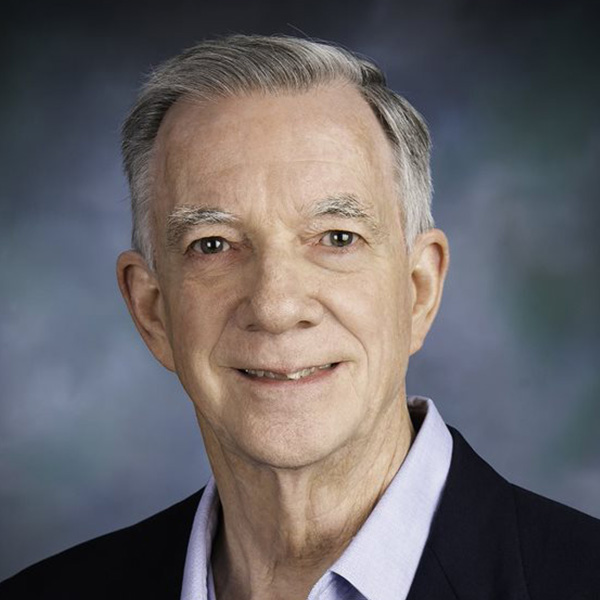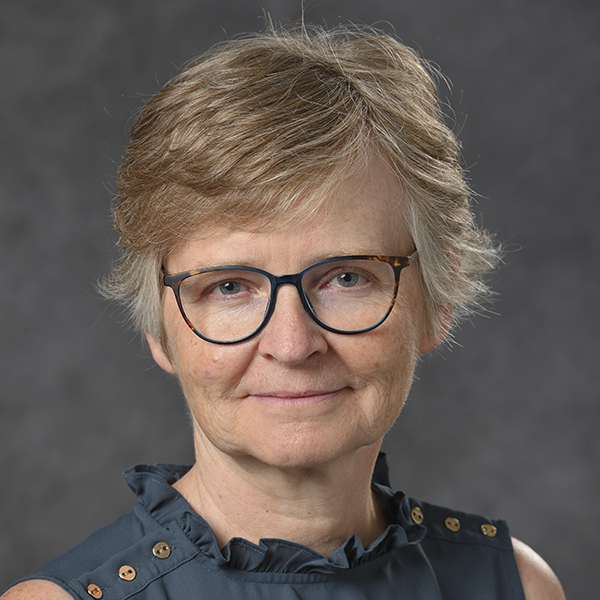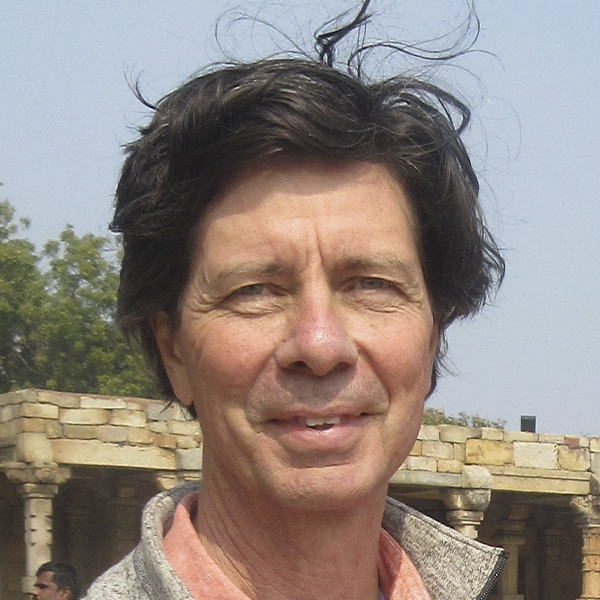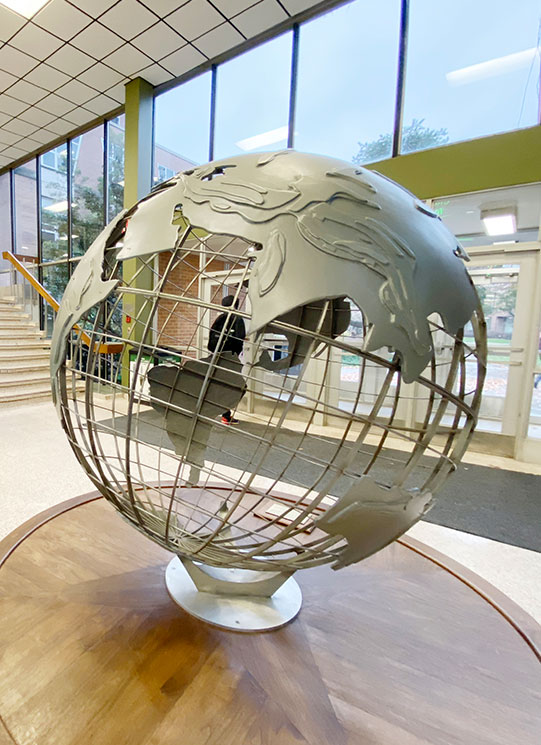2022 International Awards: Dean’s Global Impact Award Honoring Spartans who helped evacuate MSU-affiliated scholars and families from Afghanistan
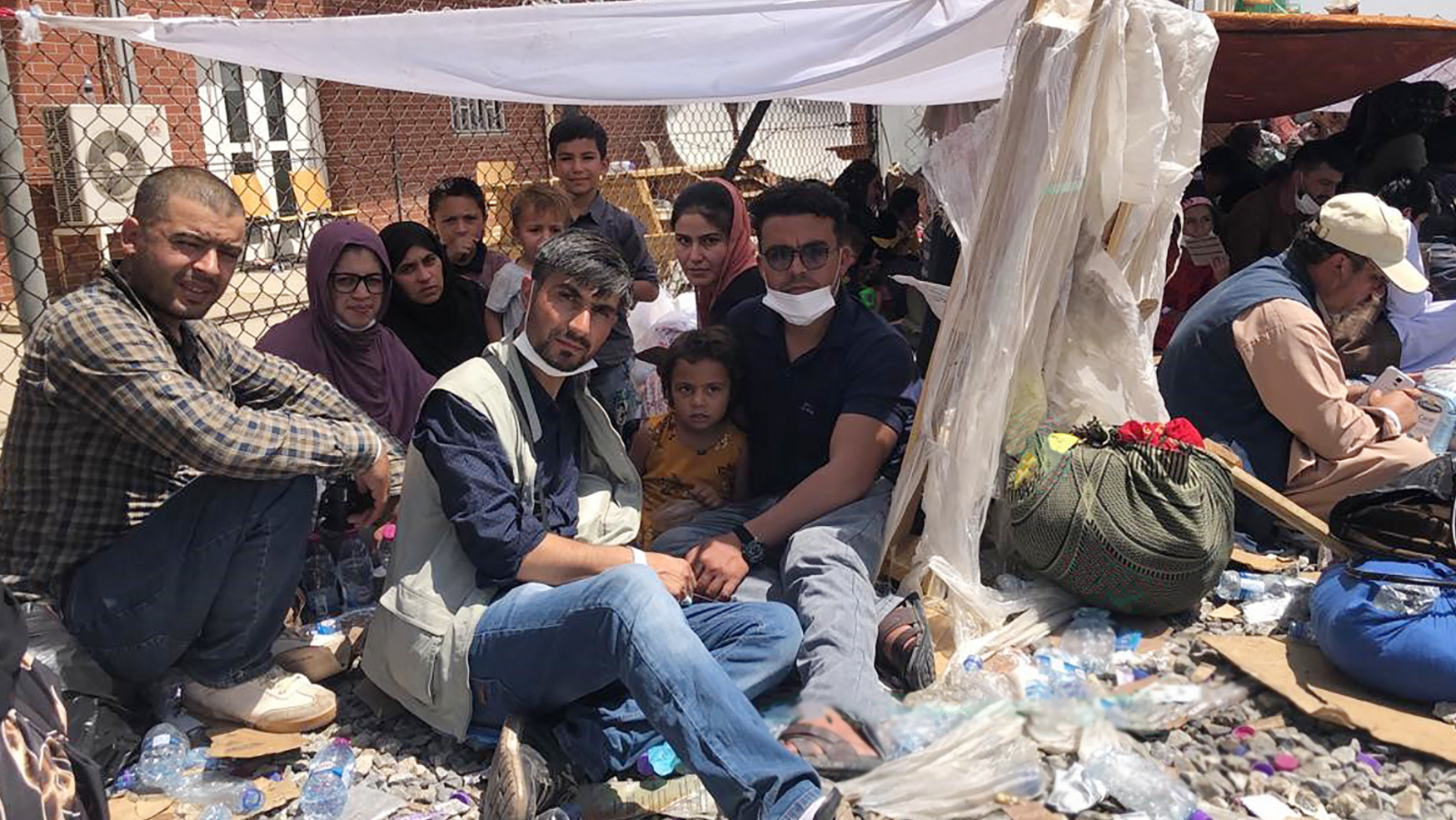
Last August, as the Taliban took control in Afghanistan, a coalition of MSU staff from across the university sprang into action to assist scholars affiliated with MSU’s Grain Research and Innovation project (GRAIN), a five-year, USAID-funded initiative aimed at bolstering Afghanistan’s wheat sector to provide a sustainable food source for the rebuilding nation.
As it became clear that scholars—especially women scholars—would be at risk under Taliban rule, MSU staff worked tirelessly in collaboration with U.S. and international partners to evacuate our Afghan colleagues out of Kabul to safety in Albania, where they began the process of applying to come to the United States.
While many people across the university were involved in the effort, four Spartans in particular played a central role, working around-the-clock until these scholars were safely outside Afghanistan. The dedication and perseverance of these four individuals led to the creation of a special award category this year—the Dean’s Global Impact Award. Associate Provost and Dean of International Studies and Programs Steven D. Hanson is proud to recognize the following Global Spartans:
Kurt R. Richter, Director and Principal Investigator, Grain Research and Innovation and Innovation Scholars Program; Director, Global Center for Food Systems Innovation; Associate Professor, Department of Community Sustainability, College of Agriculture & Natural Resources
Jessica Garrels, Senior Program Manager, Grain Research and Innovation, Global Center for Food Systems Innovation
Christopher Daniel, Director, Office for Global Health, Safety, and Security
Sarah Walter, Associate Vice President for Federal Relations, Office of the Senior Vice President for Government Relations
On the morning of March 22, 2022 a plane carrying MSU’s GRAIN colleagues landed at Dulles International Airport outside of Washington D.C. The group of 67 (which has grown after welcoming two babies!) will begin the resettlement process in the U.S.
Reflections from the Team: Kurt Richter
What role did you play in the effort?
My role connected MSU and the GRAIN office in Kabul to the key players in Washington, D.C. I was constantly in contact with Jessica, Sarah, Chris and Rep. Slotkin's team. I also wrote twice daily emails to a list of U.S. universities that were also trying to get colleagues out of Afghanistan, updating them on what we learned and the situation in Kabul.
What was your why?
My why is simple—it was the right thing to do and I would want someone to do the same for me if am ever in that situation. I will always wish we could have done more, but I will always be proud we did as much as we could.
What will you carry with you indefinitely?
The pride in being a part of a team that did something that we thought was impossible. We accomplished this through hard work and teamwork.
What do you hope is the lasting impact?
That the children and grandchildren of the people we evacuated have amazing, fulfilling lives.
What do you want colleagues to understand about the effort and MSU’s Afghan scholars and staff?
There were thousands of things that could have gone wrong. But our team at MSU, in D.C., and in the field never stopped working the problem—and then the next problem. There was no guarantee we would be successful. We only focused on doing the next right thing. When one focuses on doing the next right thing, amazing things will happen.
We are not heroes—but what we did shows MSU can do heroic things when we are focused and empowered. Some have said MSU is a slow-moving organization. This proves MSU is much more than that because of the great people who call this university home.
Reflections from the Team: Jessica Garrels
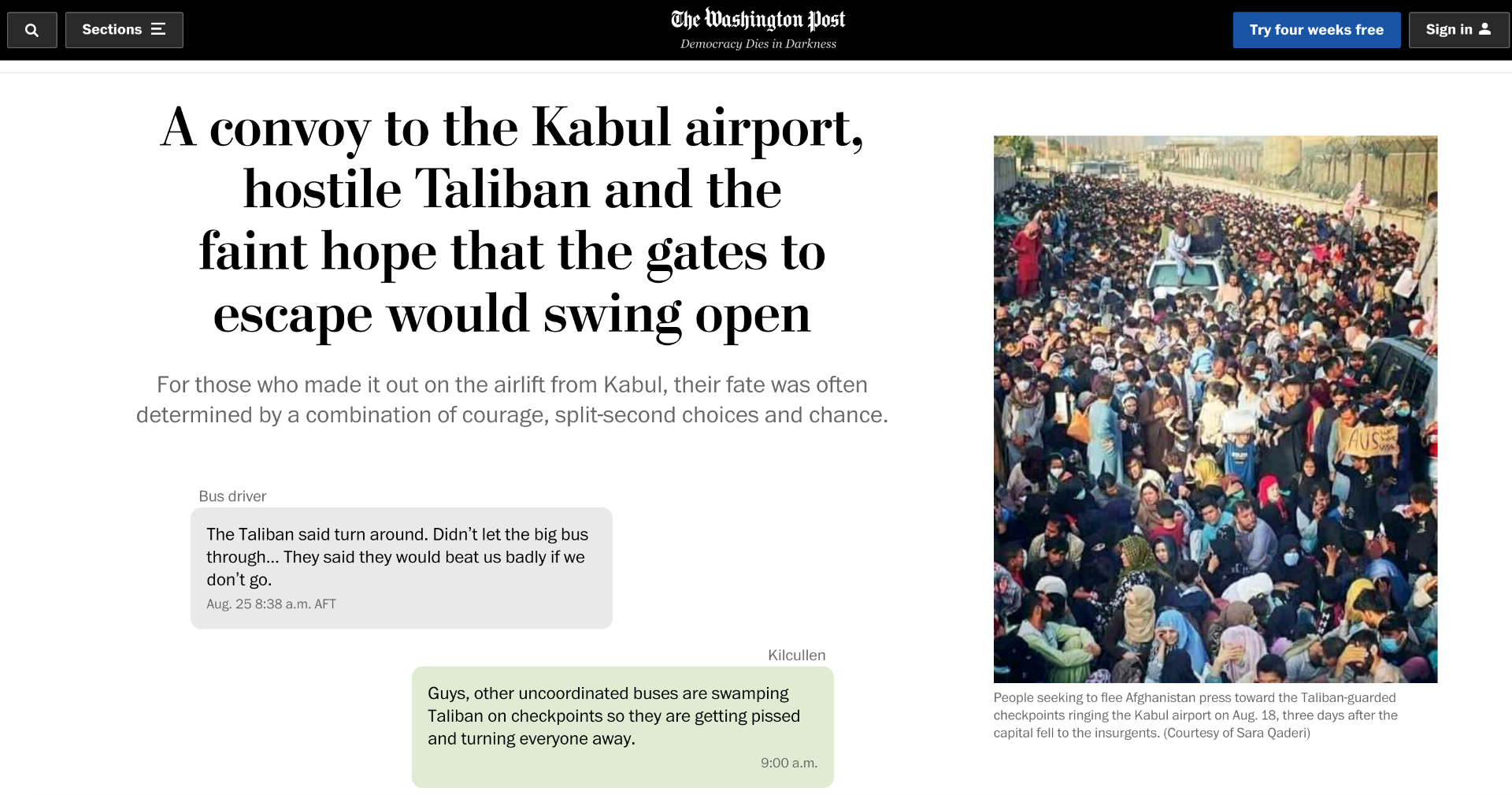
What role did you play in the effort?
I was in touch with staff and scholars over WhatsApp, coordinating collection of forms and data in order to compile a list of proposed evacuees and complete and submit P1/P2 refugee visa applications. At one point for a couple of days, Dr. Richter and I also traded off with situation monitoring/communications in order to ensure each of us had a chance to get some sleep.
What was your why?
I wanted to make sure we got as many of our colleagues to safety as possible, given that most had a decades-long history of work with or for the U.S. in some capacity—they were being targeted precisely because of that. I also wanted to get GRAIN’s female scholarship students out of Afghanistan so they would have a chance somewhere else to make use of their education.
What will you carry with you indefinitely?
The messages from colleagues over WhatsApp after the Taliban took over and before the evacuation—their fear and anxiety was palpable.
What do you hope is the lasting impact?
I hope that our colleagues’ children attend U.S. elementary schools, high schools and colleges—that they get a chance to chart their own destinies here in the U.S. as new Americans.
What do you want colleagues to understand about the effort and MSU’s Afghan scholars and staff?
At no point was the evacuation guaranteed, nor did we get everyone out that we hoped. We got so lucky—lucky that we reached out to the right people at the right time, lucky that MSU had the will up and down the chain to make things happen, lucky that USAID wanted people to get to safety. Thank goodness for that because the GRAIN staff and scholars are smart and ambitious—they’ve been through a lot, and I hope they find kindness wherever they end up in the U.S.
Reflections from the Team: Christopher Daniel
What role did you play in the effort?
I worked with the GRAIN Team, International SOS, the U.S. Department of State, USAID former colleagues and networked partners to help with security assessments and analyses for the GRAIN team members and former scholars. This information helped MSU determine what the security situation on the ground was actually like during the Taliban takeover and how to mitigate risk for MSU’s GRAIN personnel, scholars and partners.
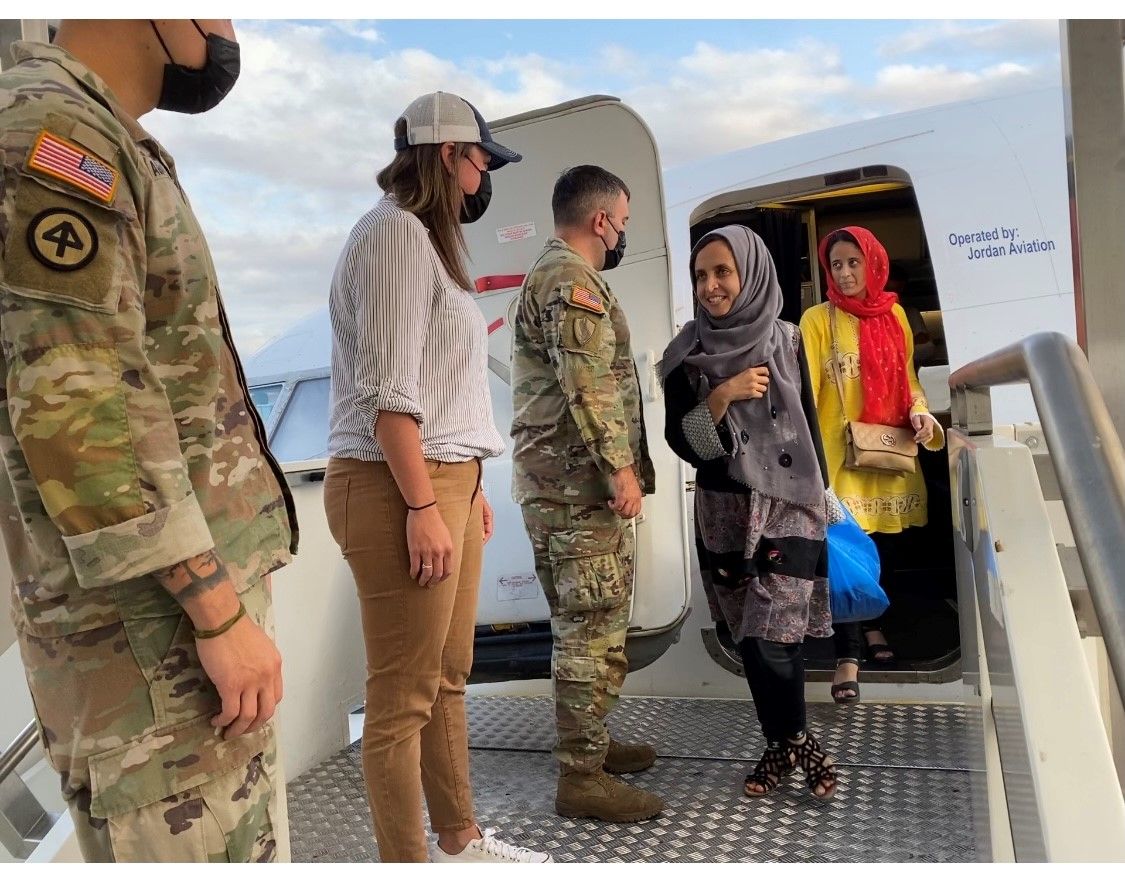
What was your why?
Having been to Afghanistan before to assist with field security planning and serving on MSU’s GRAIN operations committee, I had a sense of the dedication demonstrated by our team on the ground in Afghanistan. This team, their families and our partners had led commendable training and education programs designed to improve local food security and women’s education. As they worked for a U.S.-funded project implemented by MSU, they faced grave personal danger when the Taliban came back into power. They needed our help and I was determined to assist in any way that I could.
What will you carry with you indefinitely?
We had some sleepless nights working to secure ground transportation from rally points in Kabul to Hamid Karzai International Airport and then to secure a charter flight out of the country. There were many false starts where our team had loaded up on a bus to get to the airport, only to be turned back by the Taliban.
Our GRAIN team was incredibly fortunate to have gotten into the airport prior to the large explosion at the airport’s Abbey Gate that killed 170 Afghans and 13 U.S. service members. I will never forget getting the message that our team had made it inside the airport gates and had secured a flight to Albania. This is a testimony to the entire GRAIN team and those working in the offices of U.S. Congresswoman Slotkin and U.S. Senator Peters.
What do you hope is the lasting impact?
Knowing the GRAIN personnel and scholars who will have new lives here in the U.S., I'm certain they will set an example for how fortunate the U.S. will be to have welcomed them. In terms of the Afghans coming to the U.S. on special immigration visas, I think this group will make numerous contributions to the cultural and economic conditions within the areas where they are settled.
One of the other big impacts at MSU will be building from the planning, policy, procedures and protocols designed to protect MSU travelers and personnel working overseas.
What do you want colleagues to understand about the effort and MSU’s Afghan scholars and staff?
I think the lesson learned here is that when MSU collaborates on any given challenge—no matter how difficult—our collective passion, drive, perseverance, can-do attitudes and integrity get the job done.
Reflections from the Team: Sarah Walter
What role did you play in the effort?
As MSU’s associate vice president for federal relations, I served as liaison between MSU GRAIN staff and the members of the Michigan congressional delegation and their staff to coordinate and communicate policy and logistical needs to evacuate the GRAIN scholars and their families to safety.
What was your why?
They needed our help. I was determined to assist in any way that I could.
What will you carry with you indefinitely?
I will never forget receiving the “wheels up” message, nor the tireless and generous bipartisan work of the members of the Michigan delegation and their staff who never once wavered in their dedication to bringing the GRAIN team to safety.
What do you hope is the lasting impact?
The lasting impact will be the protection and preservation of the USAID GRAIN brain trust of knowledge that will serve the growth of agricultural innovation for generations to come.
What do you want colleagues to understand about the effort and MSU’s Afghan scholars and staff?
The lesson learned—or reaffirmed—was the power of the interconnected efforts of many different parts of the university in different geographical areas working together to achieve a common goal. It truly was an example of the MSU mission of advancing the common good with uncommon will.
- Steve Hanson, Associate Provost and Dean for International Studies and Programs
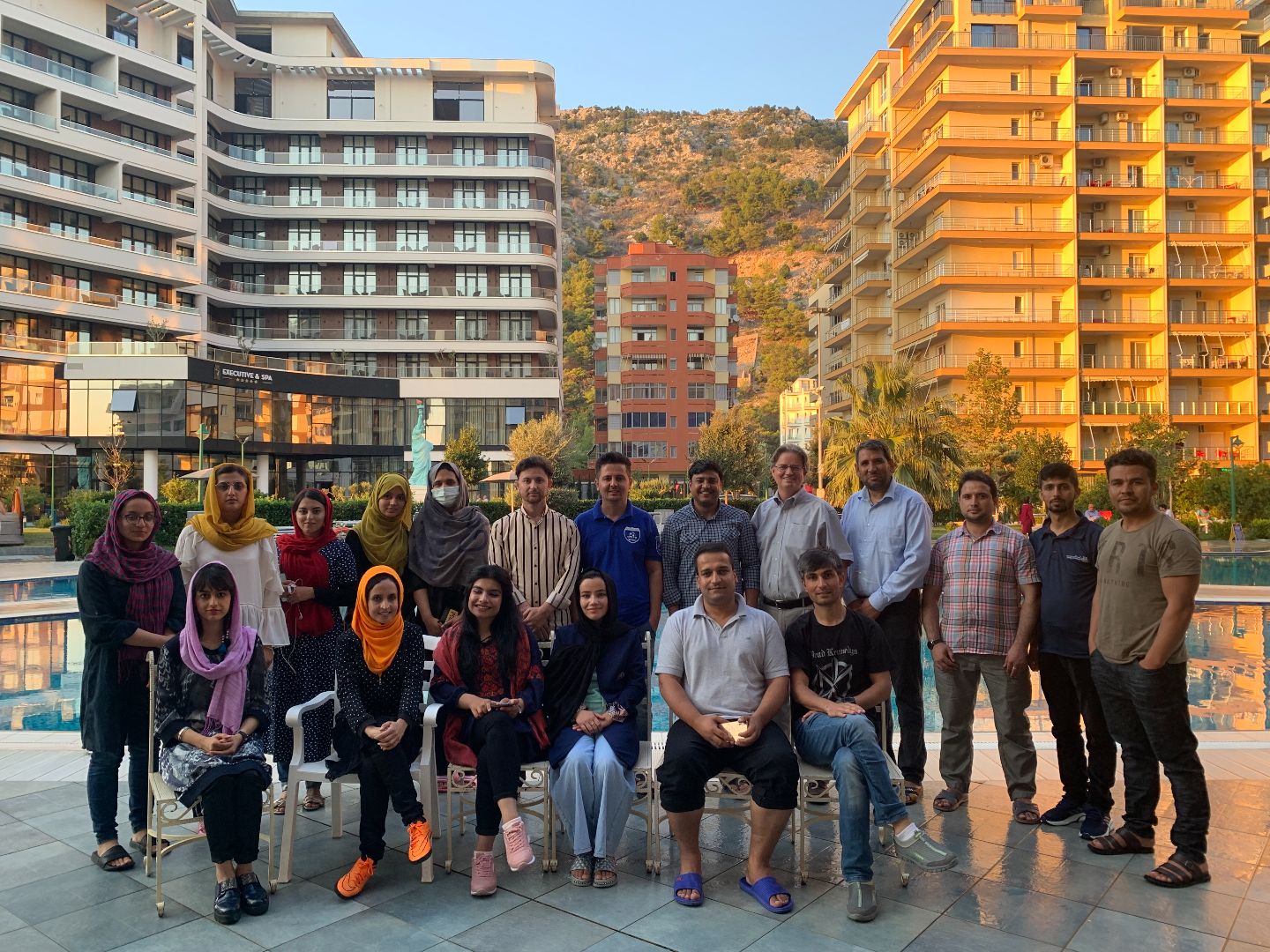
Acknowledgements
- Ambassador Yuri Kim, U.S. Embassy in Albania
- U.S. Representative Elissa Slotkin and staff; special thanks to Major Holly Gramkow and Sohum Pawar
- The following members of Congress and their staff:
- U.S. Senator Debbie Stabenow
- U.S Senator Gary Peters
- U.S. Representative Peter Meijer
- U.S. Representative Lisa McClain
- Spirit of America; special thanks to Colleen Denny
- Premier International Risk Management; special thanks to Schalk Spies and Neels Kruger
- GRAIN staff; special thanks to Dr. Ghulam Hazrat Halimi and Tracie Carr
- Doug Gage, Vice President, Office of Research and Innovation, Michigan State University
- Mike Jennings, Vice President, Commercial Sales - Americas, ACC Aviation Group
- Khushal H. Safi, Director, Public Security and Travel Safety and Security, Northeastern University
- George Taylor, Chief Operating Officer, Exlog Global
- Cole Donovan, Assistant Director for International Science and Technology, White House Office of Science and Technology Policy; seconded to President Biden’s Emergency Operations Team for Afghanistan
- Bina Hensel, Senior Europe Analyst, Overseas Security Advisory Council, U.S. State Department Bureau of Diplomatic Security
- Pranoti Surve, Senior Manager, Global Security Programs, Philip Morris International
The Dean’s Global Impact Award was introduced in 2022 to honor MSU staff who played an extraordinary role in the evacuation of MSU-affiliated scholars and families from Afghanistan as the Taliban took control in August 2021. In the spirit of their efforts, the Dean’s Global Impact Award will recognize extraordinary Spartans for singular actions that have a direct and remarkably positive impact on members of MSU's global community. The award is presented at the discretion of the associate provost and dean for International Studies and Programs and is not necessarily given every year.


